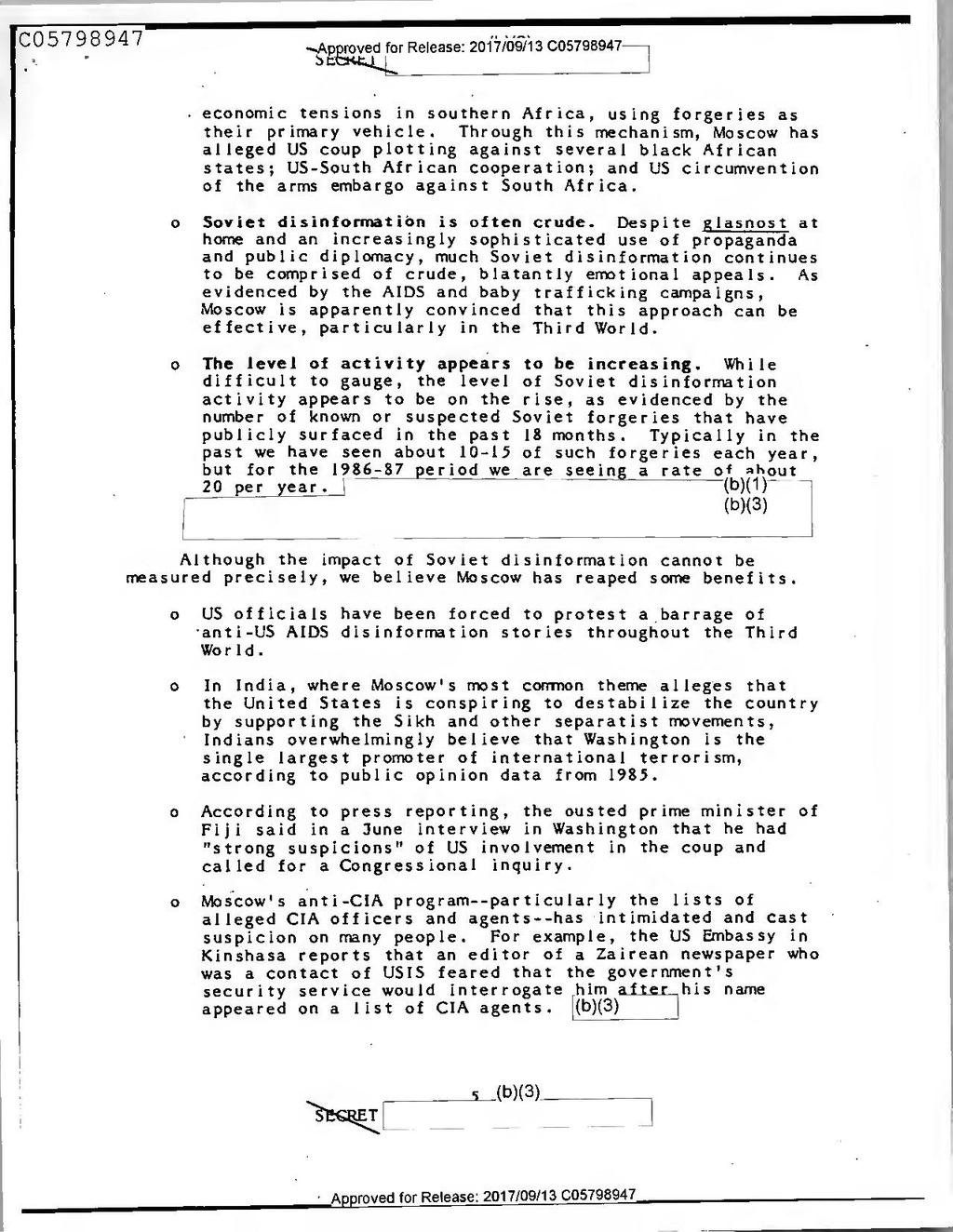economic tensions in southern Africa, using forgeries as their primary vehicle. Through this mechanism, Moscow has alleged US coup plotting against several black African states; US-South African cooperation; and US circumvention of the arms embargo against South Africa.
O
Soviet disinformation is often crude.
Despite glasnost at home and an increasingly sophisticated use of propaganda and public diplomacy, much Soviet disinformation continues to be comprised of crude, blatantly emotional appeals. As evidenced by the AIDS and baby trafficking campa i gns, Moscow is apparently convinced that this approach can be effective, particularly in the Third World.
O
The level of activity appears to be increasing. While difficult to gauge, the level of Soviet dis information activity appears to be on the rise, as evidenced by the number of known or suspected Soviet forgeries that have publicly surfaced in the past 18 months. Typically in the past we have seen about 10-15 of such forgeries each year, but for the 1986-87 period we are seeing a rate of about 20 per year :
(b)(1) (b)(3)
Although the impact of Soviet disinformation cannot be me a sured precisely, we believe Moscow has reaped some benefits.
o
US officials have been forced to protest a barrage of 'anti-US AIDS disinformation stories throughout the Third World.
o
In India, where Moscow's most common theme alleges that the United States is conspiring to destabilize the country by supporting the Sikh and other separatist movements, Indians overwhelmingly believe that Washington is the single largest promo ter of international terrorism, according to public opinion data from 1985.
o
O
According to press reporting, the ousted prime minister of Fiji said in a june interview in Washington that he had "strong suspicions" of US involvement in the coup and called for a Congressional inquiry. Moscow's anti-CIA program--particularly the lists of alleged CIA officers and agents--has intimidated and cast suspicion on many people. For example, the US Embassy in Kinshasa reports that an editor of a Zairean news paper who was a contact of USIS feared that the government's security service would interrogate him after his name appeared on a list of CIA agents. (b)(3)
5_(b)(3)
SECRET
Approved for Release: 2017/09/13 C05798947
